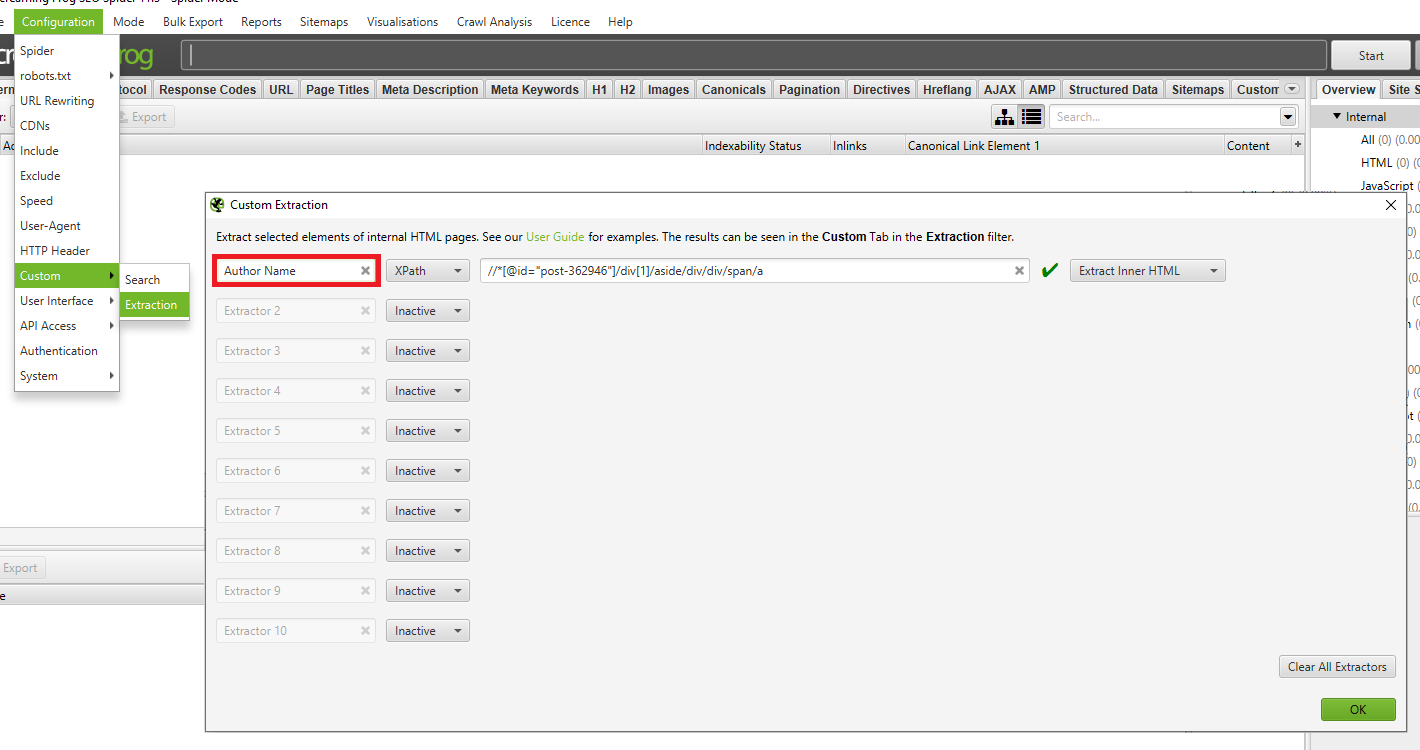The concept of “authorship” as part of SEO is nothing new.
Over the years, Google has rolled out a variety of features and initiatives aimed at identifying and surfacing information about the authors of online content.
In fact, even dating as far back as 2005, Google filed the “Agent Rank” patent, which aimed to use “digital signatures” to “assign scores” to content based on the reputation of the agent who produced it.
Since that patent, discussions around authorship and its role in SEO have ebbed and flowed, as Google rolled out features like rel=author and Google+, only to later deprecate them.
However, authorship appears to be taking on a renewed importance in SEO, given Google’s emphasis on E-A-T over the past couple of years, particularly as it relates to core algorithm updates.
Since August 2019, whenever Google releases a broad core update, it shares the same article, What webmasters should know about core updates, as the centralized source of information about what it aims to achieve with its algorithms.
Within the article, Google asks the following two questions related to the role that authors play in the quality and trustworthiness of content:
“Does the content present information in a way that makes you want to trust it, such as clear sourcing, evidence of the expertise involved, background about the author or the site that publishes it, such as through links to an author page or a site’s About page?”
“Is this content written by an expert or enthusiast who demonstrably knows the topic well?”
While these are just two of many questions Google suggests site owners consider when analyzing the impacts of core algorithm updates, they echo the same theme that is pervasive in Google’s Search Quality Guidelines:
The fact that the individuals behind the content and their reputations play a role in how content should perform in Google’s search results.
Does This Make Author Biographies an SEO Ranking Factor?
Given its prominence in Google’s communications, the topic of authorship has become a focal point for marketers looking to improve their websites’ E-A-T.
This leads many digital marketers and SEO professionals to speculate about whether the presence of author names or including author biographies are ranking factors in and of themselves.
Google has responded to this by indicating that there is no technical requirement for listing authors as a direct ranking factor.
The presence of an author name is something that should instead be considered as an element of the page that can help improve user experience and trust.
The role of authorship in SEO is therefore one that is more qualitative in nature and not something that can be easily measured in terms of its direct impact on organic search performance.
However, there are a variety of techniques that can be used to evaluate the impact of your authors’ contributions on your overall digital marketing goals.
These tactics can also help identify opportunities to better communicate to both users and search engines alike who your authors are and why they should be trusted as experts.
Here are five methods to analyze author performance, as well as techniques that can be used to solidify the search engines’ understanding of your authors and their credentials.
1. Use HTML Extract to Analyze Author Performance
Given that many websites build author names into their templates for blog or article pages, extracting HTML using XPath can help to organize SEO performance data based on each individual author or expert reviewer.
Here’s how.
Use the Chrome Inspector to Isolate the XPath of the Author or Expert Reviewer’s Name on Your Page
Copy the XPath Into Your Crawler of Choice
In this example, we’ll use Screaming Frog.
To stay organized, you can label the extraction “Author Name.”

This same process can be replicated for expert reviewers or any other page element for which you’d like to measure performance.
Conduct a crawl of the pages on which the author names are listed, and export your custom extraction into a spreadsheet you can then use to pull in performance data from Google Analytics or other measurement tools.
Collect your analytics performance data for the same pages you crawled, and use VLOOKUP to match your author names to the analytics data using the URL as the common identifier.
Then, by creating a pivot table using author names as rows, you can analyze the performance of each individual author in terms of traffic, user engagement, and conversions.
Below is an example of how the final product might look (depending on which columns you choose to pull into your pivot table).
 Sidenote: the authors displayed above were created by a random name generator.
Sidenote: the authors displayed above were created by a random name generator.
This process can then be expanded in order to analyze your authors’ performance in terms of the perceived quality of the content itself.
This is done using readability metrics.
While these metrics are not a substitute for real editing and evaluation done by a human reviewer, readability tools can be used as a way to illuminate content quality issues or opportunities at scale.
There are a number of readability tools on the market, but Readable is my preferred resource for this process because it offers the ability to analyze the readability of URLs in bulk.
Upload your list of URLs to Readable, or your readability analyzer of choice, and use VLOOKUP plus pivot tables to evaluate the readability metrics of each individual authors.
Here is an example of how this can look in practice:

Readability tools often use a variety of different metrics to measure readability, so it’s important to fully understand the definitions of these metrics and how they are measured before making any strategic decisions based on the results of these analyses.
Here are some examples of questions you can analyze using the above process:
- How do the authors compare in terms of their articles’ conversion rates?
- How much traffic has each author generated, relative to how many articles they have written?
- Which authors generate the lowest bounce rates or longest average time on site?
- Are there any correlations between an article’s word count, tone, or sentiment and its performance?
Note: It’s important to remember that the above process should always be used in conjunction with real human evaluation and editing of content. The data can help paint a picture, but there is no better way to analyze content performance than to have it scrutinized by real human editors.
2. Performance in Google’s Knowledge Graph
There is plenty of debate in the SEO community about the extent to which Google is capable of recognizing the authors on your site, particularly if they are not well-known.
Google’s previous attempts at rel=author markup were deprecated several years ago, leaving a mystery as to what exactly took its place.
The below quote from Google’s Gary Illyes at SMX in 2016 was worth noting in terms of Google continuing to use authorship data even without the markup:
from @methode “we are not using authorship at all anymore…we are smarter than that.” but thanks for giving them all that data, SEOs. #smx
— MichelleRobbins (@MichelleRobbins) June 23, 2016
So, while we haven’t received a specific update about how Google may or may not be using author data, we do have one clear place to look to see if Google considers an author to be a recognized entity within its database: the Knowledge Graph.
The Knowledge Graph currently stores 500 billion facts about 5 billion entities.
Those entities include recognized experts in their fields, such as doctors, lawyers, scientists, chefs, nutritionists, and more.
Looking up your authors in Google’s Knowledge Graph is a surefire way to know whether your authors or expert contributors are formally recognized entities by Google.
I always recommend the Carl Hendy Knowledge Graph Search tool for this purpose, given how easy it is to use.
But you can also look up entities directly from Google Developers, and if you want to get fancy, you can even create a custom tool using Google Sheets to pull in Knowledge Graph data using the Knowledge Graph API, which can enable you to look up entities at scale without needing to search for each one individually.
Despite knowing about 5 billion entities, Google’s Knowledge Graph is still limited in terms of knowing everything and everyone on the internet.
It’s most likely the case that Google doesn’t know who many of your authors are, and you’re also likely to discover that they are not included in the Knowledge Graph.
Does this mean you’re at a disadvantage for SEO?
No. Your content can still rank just fine without authors being listed in the Knowledge Graph.
But if you would like to go the extra mile to prove to Google that your authors and collaborators are experts in their fields, trying to become a recognized entity within the Knowledge Graph is a great place to start.
Being included in the Knowledge Graph comes with a few additional benefits:
- Your authors can claim your Knowledge Panel and help control the information that is displayed about them.
- They can be invited to programs like Google Cameos, which is invite-only for listed experts within the Knowledge Graph.
- They can appear as a related search suggestion when searchers look for another expert closely related to them.
- The presence of a Knowledge Panel when a user searches for an author’s name is a great way to instill trust and confidence in that author’s expertise.
3. Research Author Reputation
If you’d like to use a more subjective and “human” approach to evaluating your authors (and you should), consider doing research on their reputation.
There is no better guide to consult during this process than Google’s own Search Quality Rater Guidelines.
Google provides specific instructions for its raters to obtain reputation information about organizations as well as content contributors.
It also provides context about how much author reputation matters, depending on the topics that author covers in their content.
Use the same methods as Google’s quality raters to evaluate content and author reputation when analyzing your own content.
If you are able to surface salient issues with an author’s reputation, particularly if that author is publishing YMYL (Your Money, Your Life) information on your site, in theory, this can work against the search engines’ ability to trust the content on your site.
4. Take Advantage of Structured Data & Keep Tabs on Its Performance
Structured data is a powerful mechanism for transmitting clear information about your authors to search engines.
As I’ve written in a prior article, you can leverage Schema.org markup to improve your E-A-T by marking up information about your authors and your organization.
While many site owners already use Author, Person, or Organization Schema, many only mark up the basic details.
There are significant opportunities to expand upon this strategy by using Schema’s recommended attributes for these properties.
For example, consider adding any of the following information to your author biography pages, and marking it up accordingly with Person structured data:
- affiliation
- alumniOf
- award
- hasCredential
- hasOccupation
- jobTitle
- knows
- publishingPrinciples
- sameAs
Author schema also accepts Organization as one of the expected values, so if you prefer to write content on behalf of the organization instead of an individual author, this can be supported through structured data as well.
The “sameAs” attribute is crucial for linking your authors and experts to the other places they are mentioned online.
Consider linking to their individual websites or social media pages, on author biography pages, and leveraging this Schema attribute to solidify those connections.
5. Leverage Google Scholar
Google Scholar is an academic platform that “helps you find relevant work across the world of scholarly research.”
In terms of demonstrating good E-A-T, it doesn’t get much better than having your author’s articles appear in Google Scholar’s index.
While not every author will be eligible to appear in Google Scholar, if they are, it’s a great idea for them to claim their profiles.
Google Scholar allows users with claimed profiles to monitor how their work is cited, and also gives them the option to allow their profiles to be searchable within Google’s organic results.
Google Scholar profiles contain a field where authors can list their websites, which is a great opportunity for authors to create a connection in the form of a link between Google Scholar and Google’s organic search results.

I asked Google patent expert, Bill Slawski, to see whether Google has filed any patents or made any public statements regarding the connection between Google Scholar and its organic search results.
He referred me to an article about Google using Google Scholar authors as a source of entity information for its Knowledge Graph.
So, it may not be entirely clear how Google uses information from Google Scholar, but at least we know that it cross-references author information between these search features.
Monitoring the Performance of Your Authors Is Good for Users, Not Just SEO
The five methods listed above can be used to illuminate underperforming content, reputation issues, or a lack of author credibility or expertise in categories where those things are required.
That said, it’s important to remember that none of the listed above have been confirmed by Google as ways to directly impact your organic search rankings.
However, they are all methods that can be used to assess the quality and performance of your authors’ content.
These evaluations are not only important for SEO performance, but they also allow for a better experience for your users, which should be the ultimate goal.
More Resources:
- Author Vectors: Google Knows Who Wrote Which Articles
- Google’s John Mueller Answers Whether Author Bio is Necessary
- Why Author Reputation Matters More Than Ever for Search
Image Credits
All screenshots taken by author, June 2020






